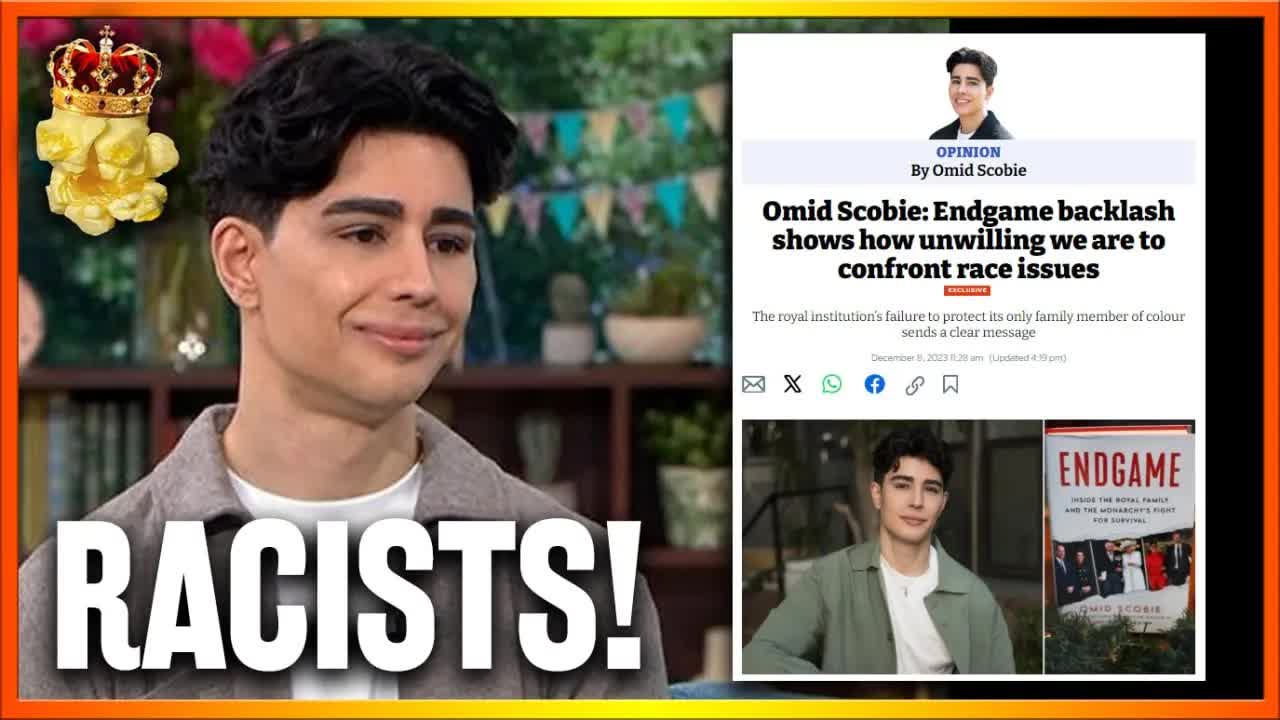Omid Scobie’s latest book, “Endgame,” has sparked significant controversy and backlash, leaving the author scrambling to defend his work.
In a recent op-ed, Scobie suggests that the criticism he faces is rooted in an unwillingness to confront racial issues within the royal family.
This response, however, has not been well received by many, who see it as a desperate attempt to deflect accountability.
Welcome to Popcorn Palace; I’m Andy Signer, and today we’re diving deep into Scobie’s claims.
If you’re familiar with the ongoing drama surrounding the Sussexes, you know this isn’t just another royal gossip piece.
Scobie’s admission of including names in his book has raised eyebrows, prompting questions about his integrity and whether he will take responsibility for the fallout.
As I prepared to read through Scobie’s op-ed, I couldn’t help but feel a mix of anticipation and frustration.
The headline alone was enough to make anyone want to dive into the details.
Scobie’s assertion that the royal institution failed to protect its only family member of color has become a recurring theme in his narrative.
Yet, many are left wondering if this is genuinely about race or merely a tactic to garner sympathy.
Scobie claims that discussing the royal family’s historical ties to race and prejudice was always going to be a challenge.
He argues that those who typically defend the monarchy would resist any critical examination of these issues.
However, critics argue that it’s not the subject matter that’s the problem; rather, it’s Scobie’s credibility that’s in question.
His past inconsistencies have led many to view him as untrustworthy.
In his defense, Scobie mentions the legal constraints that prevented him from revealing certain names in “Endgame.”
He expresses confusion over how information leaked, suggesting it was an error by a foreign publisher.
But many see this as an excuse rather than a valid explanation.
After all, he crafted the narrative, and now he’s left to navigate the chaos it has created.
The backlash against Scobie intensified after he called out members of the royal family, implying they had concerns about the skin color of the Sussexes’ child.
This revelation, which was indeed part of his book, has dominated headlines, yet Scobie seems surprised by the uproar.
It raises the question: Did he expect this revelation to go unnoticed?
While Scobie attempts to position himself as a champion of important discussions about race, his detractors argue that he’s merely using this narrative to distract from his book’s shortcomings.
The reality is that many readers feel let down by his work, claiming it lacks substance and fails to deliver on its promises.
As the media frenzy continues, Scobie finds himself at the center of a storm, with reporters hounding him and public sentiment turning against him.
The idea that his book sparked a genuine dialogue about race within the monarchy is increasingly being challenged.
Instead, it appears that the focus has shifted to defending his credibility and addressing the fallout from his claims.
The struggle for Scobie is evident as he tries to maintain his stance while facing mounting criticism.
He argues that the public is resistant to meaningful conversations about the monarchy’s legacy, yet many wonder if he’s simply deflecting blame for his own failures as an author.
Is it fair to say that criticism of his work is an attack on the conversation about race?
With public support for the monarchy reportedly dwindling, Scobie’s attempt to link his book’s reception to broader societal issues feels like a miscalculation.
Critics argue that he should take responsibility for the content of “Endgame” rather than using race as a shield against the backlash.
After all, accountability is essential in any meaningful discourse.
As the dust settles, it’s clear that Omid Scobie’s narrative has not only faced scrutiny but also raised questions about the integrity of his reporting.
The royal family, the Sussexes, and the broader conversation about race are all part of an intricate web that Scobie must navigate.
Whether he can regain credibility and engage in a genuine dialogue remains to be seen.
So, what do you think?
Is Scobie right to point fingers at society’s reluctance to confront race, or is he merely trying to save face after a rocky launch?
The debate continues, and the royal drama shows no signs of slowing down.










